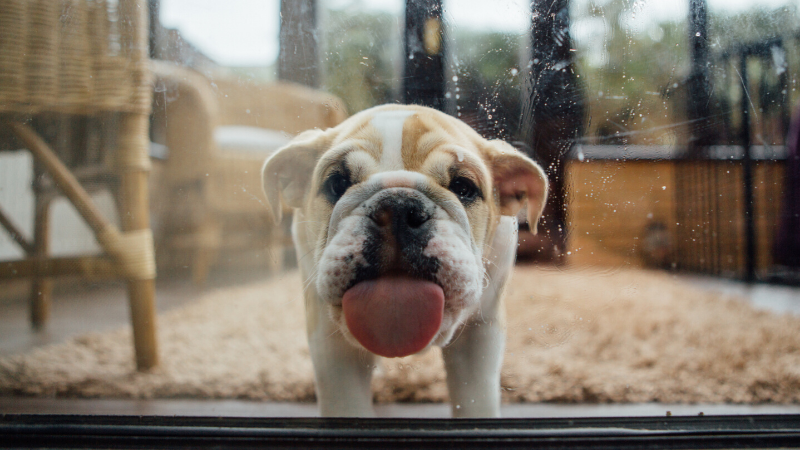
We’ve heard it from our grandmothers and other wise folks; dogs lick themselves to heal their own wounds or they lick and eat grass to make themselves throw up when they’re sick. Are these theories true? What about those pets that just can’t stop licking?
Nowadays, we know pets don’t have the same type of taste buds on their tongues that people have. Dogs don’t taste salt, and cats don’t taste salt and sweet in the same way we do. They have evolved as carnivores and prefer meaty (umami) flavours while avoiding bitter and sour flavours. Licking is a natural behavior that allows them to investigate their world and determine what’s good to eat and what might be bad or dangerous. Pets also use licking to keep their coats and paws clean. When animals lick too much however, they can damage their skin or potentially eat something that might make them sick.
Medical Causes of Abnormal Licking
Your veterinarian will be able to differentiate and diagnose conditions associated with excessive licking.
· Wounds. Pets may not understand wound healing, but they will attempt to relieve their own pain through licking, which may act as a kind of massage to an injured body part. Saliva may indeed have minor healing properties, but the additional bad bacteria in a dog or cat’s mouth cancels those benefits. Licking at wounds will introduce more bacteria and cause worsening of infections.
· External parasites like fleas and ticks. Watch for dogs and cats licking over their backs and hindquarters or under their armpits as they try and catch these nasty little critters.
· Allergies. Your veterinarian may recommend testing and treatment for food and environmental allergies if your pet is constantly licking at their paws and under their tail or scratching at their face and ears.
· Joint Disease. Older pets lick over their joints to try and relieve the discomfort associated with arthritis and other joint conditions.
· Feline lower urinary tract disease. A cat with pain related to cystitis (bladder inflammation) will tend to lick at their belly, especially when they are alone or think nobody is watching.
· Behaviour. Cats with Siamese or Birman genes may be predisposed to a condition known as wool-sucking where they compulsively lick or chew certain fabrics. We see similar signs in some cats who have been weaned from their mom too early. Dogs with anxiety may soothe themselves by licking their legs, nearby surfaces, or even the air!
Are there other reasons dogs lick?
Dog will lick themselves, carpets, grass, or just about anything available, in response to nausea or pain. Dogs probably don’t “know” that eating grass will make them throw up, but they may learn that doing so provides temporary relief from stomach upsets. In a 2012 study from the University of Montréal, gastrointestinal conditions, such as stomach issues, pancreatitis, or liver conditions, were diagnosed in almost three-quarters of the dogs observed to excessively lick at close objects or surfaces. Once your veterinarian has ruled out other common reasons, they may recommend further diagnostic testing, prescription medication, or a diet trial to assess the possibility that your pet is licking because they are literally sick to their stomach.
Don’t ignore any licking that is frequent, concentrated on one area of the body, or causes your pet to cry. Seek the advice of your veterinarian to give your pet the relief they deserve.
Pet insurance can help with the cost of vet visits
If your pet is excessively licking and your vet diagnoses him or her with an illness or condition, Petsecure can help with the cost of treatment. Learn what’s covered by Petsecure and get a free quote today.
Want to share information about excessive licking with others? Share these tips on Facebook or Twitter.
